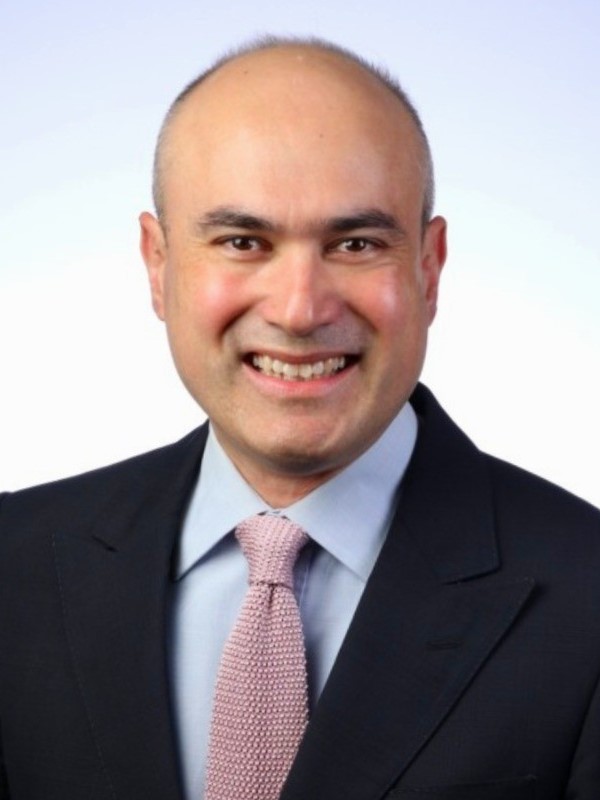
Clinical research has played a major role in improving cancer outcomes as it fosters advances in prevention, diagnosis and treatment. By following rigorous methods of scientific investigation, clinical trials can bridge the gap between laboratory science and patient care, transforming theoretical possibilities into life-saving therapies for many patients.
Here are some of the remarkable benefits of clinical research:
Delivering medical breakthroughs
Clinical trials frequently assess novel therapies that often become tomorrow's standard treatments. The evolution of cancer treatments from chemotherapy to targeted therapies and immunotherapies reflects the deep impact of research on patient outcomes. Precision medicine emerged from studies demonstrating that treatments tailored to specific molecular profiles can greatly improve results.
Northside Hospital Cancer Institute has participated in a study in partnership with AstraZeneca to closely monitor patients with HR+/HER2- metastatic breast cancer to identify when a detectable ESR1 mutation is identified through a simple blood test. Once the mutation is identified, patients can immediately switch to a new medication that targets the mutation. Using this approach can help doctors to understand when cancer is not responding to treatment well before any signs and symptoms are seen.
Enhancing cancer detection
Cancer research extends beyond the development of novel therapies. It has had a pivotal role in enhancing the way physicians diagnose cancer. Studies exploring biomarkers, imaging technologies and screening protocols help detect cancers earlier. Research has enabled evolution from only involving crude physical examinations to sophisticated molecular tests that detect cancer before symptoms appear and predict which treatments will work best for individual patients.
Northside Hospital Cancer Institute has participated in a pivotal study in partnership with the National Cancer Institute to evaluate 2D vs. 3D mammograms to further scientific evidence that 3D mammograms can detect breast cancer earlier.
Better understanding of cancer behavior
By observing cancer patterns in patients enrolled in clinical trials, researchers collect important data on disease progression, resistance mechanisms and risk factors. This growing knowledge informs future studies and treatment approaches, creating a virtuous cycle of discovery and execution.
Improving quality of life
Nowadays, cancer research increasingly focuses on quality of life. Studies evaluate new ways of managing side effects, addressing psychological needs and supporting patients through their cancer journey. Almost every clinical trial incorporates a facet of quality of life evaluation through the administration of brief questionnaires completed by participants. A comprehensive approach to patient care recognizes that survival alone is not the sole definition of successful cancer care.
How about challenges or other considerations?
Clinical trial recruitment can be challenging. Fewer than 5% of adult cancer patients currently participate in trials. Strict study eligibility criteria, disparities in access and representation mean certain groups remain underrepresented, potentially limiting the applicability across the population. Northside Hospital Cancer Institute has worked closely with many research groups and industry partners to bring the latest leading-edge technologies, innovative treatments and expert care personalized to meet each patient’s needs. Financial toxicity, long viewed as a barrier to enrollment, is mitigated through funding for travel, hotel, meals, parking and gas frequently offered via clinical trial study sponsors.
Northside’s Research Program has several locations available to afford patients the opportunity to participate in clinical trials within a close proximity to their home, all in an effort to ease travel and to foster a balance between clinical trial commitments and work-home-life. The program offers translated clinical trial materials and interpretation services across our geographic footprint for non-English speaking patients. In addition, there are ethical aspects to consider, such as weighing the scientific merit against patient welfare. Tapping into how patients define benefit is a key aspect of having a discussion with patients about clinical trial participation.
Northside Hospital Cancer Institute strives to offer a varied portfolio of types of trials to meet the needs of our patients, and to answer the questions patients may ask about benefit: “what’s in it for me,” or “how will this impact work/children/school.” It is important to understand that there are many different types of clinical trials: specimen collection, observational, quality of life/questionnaires and treatment, and what defines “benefit of participating” to the patient may differ from that of the treating physician. Ensuring a varied portfolio provides more options to patients to participate in clinical trials. Navigating questions related to informed consent, placebo use and access to a variety of types of clinical trials and experimental treatments while maintaining the highest standards of patient-centered care is a must for any clinical trial available through the Northside network.
How can we make progress?
Our infrastructure, expertise and commitment to patients receiving the latest innovative treatments set us apart. Accelerating translation of research findings into practice, broadening the scope of clinical trials and offering studies with designs that reflect the changing treatment landscape and patients’ preferences are some of the notable features of our program that we must continue to unyieldingly promote.
At Northside Hospital Cancer Institute, our patients are offered:
- The convenience of having world-class care, along with a growing number of innovative National Institutes of Health and pharmaceutical clinical trials close to home — Research trials are available in over 10 locations across the Atlanta region.
- Oncology physicians with extensive clinical expertise and training from some of the most highly-regarded programs in the country
- Some of the most experienced multi-disciplinary teams in the country, with close to 16,000 new cancer patients being diagnosed and/or treated each year
- One of the nation’s most advanced cell therapy and stem cell transplant programs with outcomes surpassing the national average as per Center for International Blood and Marrow Transplant Research (CIBMTR) for the past 16 consecutive years
- A comprehensive range of cancer survivorship programs
Patients, too, can make a difference in the way research is conducted. Patient partnerships and advocacy can ensure our research addresses meaningful outcomes and remains relevant to all patients.
Conclusion
Thanks to research endeavors that enabled many patients to live better and longer, there is growing recognition that clinical trials are the most effective approach to understanding and conquering cancer. Each trial, regardless of its outcome, contributes critical knowledge to the collective effort. We at Northside Hospital Cancer Institute believe that for all patients of today and tomorrow, research offers hope grounded in scientific evidence and methodical progress, and the continued investment remains essential to improve cancer prevention, detection, treatment and survivorship.
Learn more about the research and clinical trials at Northside.


